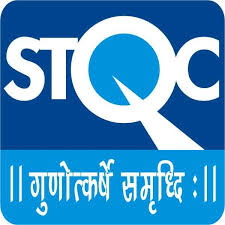Speech by CG during Opening Ceremony of the 5thChina (Lianyungang)
Silk Road International Logistics Expo
[19.09.2018 at 1100 hrs]
Namaskar, Jao Shang Hao, Good Morning!!
Mr. Xiang Xue long, Party Secretary of Lianyungang,
Mr. Lupen qi, Vice Chairman of CCPIT,
Mr. Wang Jiang, Vice Governor of Jiangsu Provincial Government,
Distinguished Guests,
Ladies and Gentlemen,
For us in India, the history of silk route dates back more than 1600 years ago when a 65 year old Chinese monk named Fa Xian (Fa-Hien) made his maiden pilgrimage to India to look for Buddhist scriptures.
The route along which he travelled was later called as Silk route and the route he chose to return back to China from India via Indian Ocean was named maritime Silk route.
For Indian civilization Silk route embodies the spirit of peace, cooperation, openness, inclusiveness, mutual learning and hard working.
Perhaps the most lasting legacy of silk route has been its role in bringing cultures and people in contact of each other and facilitating exchange of scientific views, arts and literature as well as craft and technologies.
One of the most famous technical advances has been propagated worldwide by the silk route was the technique of making paper as well as printing press technology.
I am extremely happy to be among you on the occasion of Inaugural ceremony of the 5thChina (Lianyungang) Silk Road International Logistics Expo and the International Port and Shipping Development Forum (“IPSDF”).
Logistics, ports and shipping are crucial elements of the Supply Chain Management and plays a pivotal role in nation’s development, act as enabler, and more so as a differentiator by making a country or region stronger than others.
The last four decades has witnessed major improvements in the logistics & global supply chains, as a result, it has provided linkages for the developing countries to international markets. China is a great example of this transformation, and it clearly stands-out as an example for others to follow.
Today a substantial share of logistics & global supply chains are taking place in developing countries, offering a range of opportunities as well as throwing new set of challenges. According to the latest UNCTAD Report on Trends in Global Trade in Services, Transport and Logistics Sector has grown by 8.5%, in comparison the overall growth of 7% for Trade in Services Sector. In order to mainstream trade as growth enabler the developing countries are required not only to implement economic policies for increasing competitiveness of their enterprises, but also improve the logistics sectors reliability and efficiency.
From an economic standpoint, emergence of strong ports & shipping industry had resulted in bringing efficiency to logistics & global supply chain and thus; had resulted in reorganization of industries based on the concept of comparative advantage. By relocating production processes R&D, concept, design, manufacturing, packaging, marketing, distribution and retailing in different countries; transnational corporations have been taking advantage of the best available human or physical resources in different countries, with a view to maintaining their competitiveness by augmenting productivity and minimizing costs.
India has taken a serious note of the importance of logistics infrastructure for overall industrial growth and has embarked on ambitious plan for holistic development of rail, road, port, waterways, coastal shipping, airlines, digital connectivity, power etc. We expect that these developments may drive India from 8% growth rate to double digit growth.
In order to give special attention to integrated development of Logistics sector, the Ministry of Commerce and Industry in India has created Logistics Division. The division has been given mandate to develop an Action Plan for the integrated development of the logistics sector in the country, by way of policy changes, improvement in existing procedures, identification of bottlenecks and gaps and introduction of technology in this sector. My senior colleague in the Government of India Mr. Anant Swarup, Joint Secretary of this Division will be participating in this event and will be presenting the India’s view point later at this Forum.
While talking on this subject, I should not fail to point out certain risks being faced by the rapid pace of improving logistics and growing inequalities between countries and regions. We should be cognizant of the fact that infrastructure and logistics are capital intensive sectors where the investments required are high but the returns are negative to modest in short term. Therefore, the developing countries are required to take a calculated risk, and adopt scientific approach for logistics development while opening up their markets. They should be cautious not to fall in debt trap, loose sovereign control over their infrastructure or allow their connectivity and logistics to pushes them in a vicious cycle of primary producers of minerals and agricultural products and importers of finished goods from industrialized economies. Unless the under-industrialized countries becomes an integral part of the global value chain, getting benefits out of logistics remains limited.
The logistics and supply chain industry has an important role in realizing the sustainable development goals. It is crucial in ensuring food and nutrition to people in need, at an affordable cost. Similarly, an efficient logistics and supply chain system greatly contributes towards achieving the target on ‘health’ through seamless supply of vaccines, medicines, blood and other health products and services. It may play a crucial role in fulfilling the other targets like ‘decent work and economic growth’; ‘sustainable cities and communities’; ‘responsible consumption and production’; ‘industry innovation and infrastructure’ among others.
On this occasion I thank all the organizers, the participants the distinguished speakers and all of you present here. I convey my best wishes to the participants of the ongoing discussion sessions which are organized. I am sure that the exchange of ideas will bring new solution to the logistics sector and pave the way for making world a better place.
Xie-Xie!!

